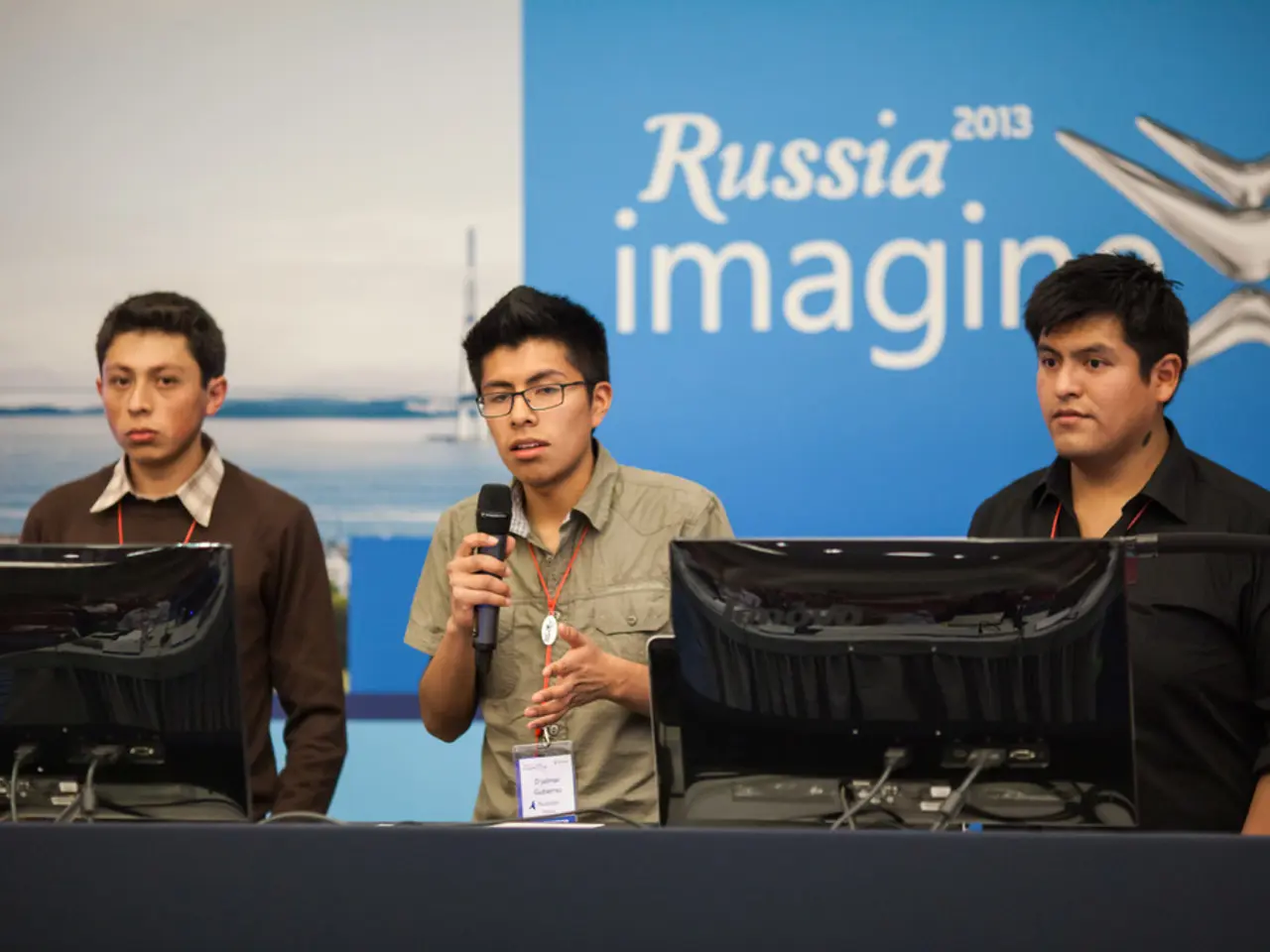Tensions Escalate Between EU and Russia, Deep-seated Distrust Prevails
In a recent summit, leaders from the transatlantic alliance, including German Chancellor Friedrich Merz, met with Ukrainian President Volodymyr Zelensky and other European leaders to discuss the ongoing conflict between Ukraine and Russia. Despite the meeting, deep-seated mistrust and differing views on a peaceful resolution persist.
Current Positions
The transatlantic alliance, including NATO and the US, is signaling readiness to provide postwar security guarantees for Ukraine. This includes support for a European-led deterrence force on Ukrainian soil, backed by US intelligence, surveillance, air defense, and logistics assets. The US conditions its involvement on European deployment of tens of thousands of troops, with Ukrainian forces trained and armed by NATO to defend a demilitarized zone patrolled by neutral peacekeepers.
However, Russia continues to reject Western security guarantees involving NATO troops and insists on conditions unacceptable to Ukraine and its allies, such as permanently banning Ukraine from NATO and limiting its military capabilities.
Regarding territorial disputes, there is no indication from NATO or Ukraine of concession on territorial integrity. Instead, the alliance is focused on support that allows Ukraine to reclaim and defend its territory, reinforced by innovative battlefield cooperation such as joint efforts to counter Russia’s advanced weapons with rapid development of cost-effective defenses.
Formal negotiations remain stalled, with Russia's Foreign Ministry reiterating Putin’s demand that peace talks address NATO expansion and security concerns Russia deems legitimate, which Ukraine and Western partners reject as preconditions. Russia has rejected meetings on terms proposed or timeline preferred by Western mediators.
Future Prospects
The transatlantic alliance’s support for Ukraine will likely continue and deepen, focusing on both immediate battlefield assistance and postwar security architecture involving NATO-European-US collaboration. This comprehensive approach aims to deter future Russian aggression without escalating NATO's direct combat role inside Ukraine.
Russia remains committed to rejecting NATO’s direct involvement on Ukrainian territory and insists on security guarantees aligned with its own strategic aims, posing a major obstacle to peace negotiations. The conflict is projected to be prolonged and dynamic, with rapidly evolving military technology and battlefield tactics prompting NATO-Ukraine joint innovation in defense systems.
Any future ceasefire or peace deal will require complex negotiations addressing the security guarantees sought by Ukraine and its allies versus Russia’s demands, which currently are irreconcilable and center on NATO’s role in Eastern Europe and Ukraine’s territorial sovereignty.
In summary, the transatlantic alliance stands firmly behind Ukraine with robust military support and plans for postwar security guarantees emphasizing European-led forces backed by US assets, while Russia remains opposed to NATO troop presence and demands conditions that clash with alliance and Kyiv positions, making ceasefire and territorial resolution uncertain at present.
Read also:
- United States tariffs pose a threat to India, necessitating the recruitment of adept negotiators or strategists, similar to those who had influenced Trump's decisions.
- Weekly happenings in the German Federal Parliament (Bundestag)
- Southwest region's most popular posts, accompanied by an inquiry:
- Discussion between Putin and Trump in Alaska could potentially overshadow Ukraine's concerns




